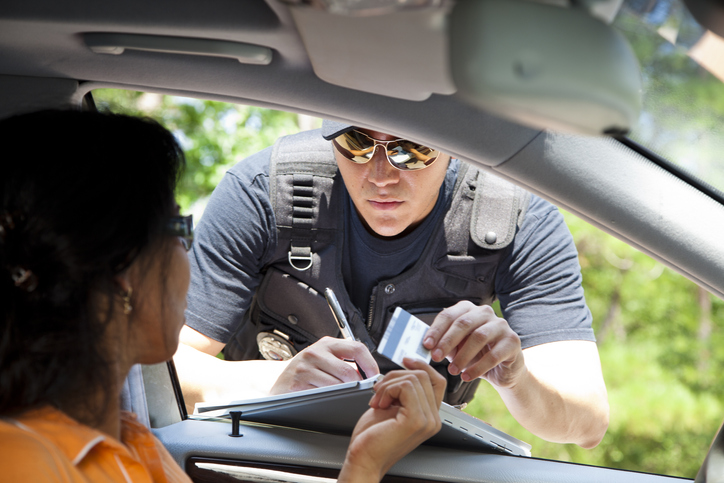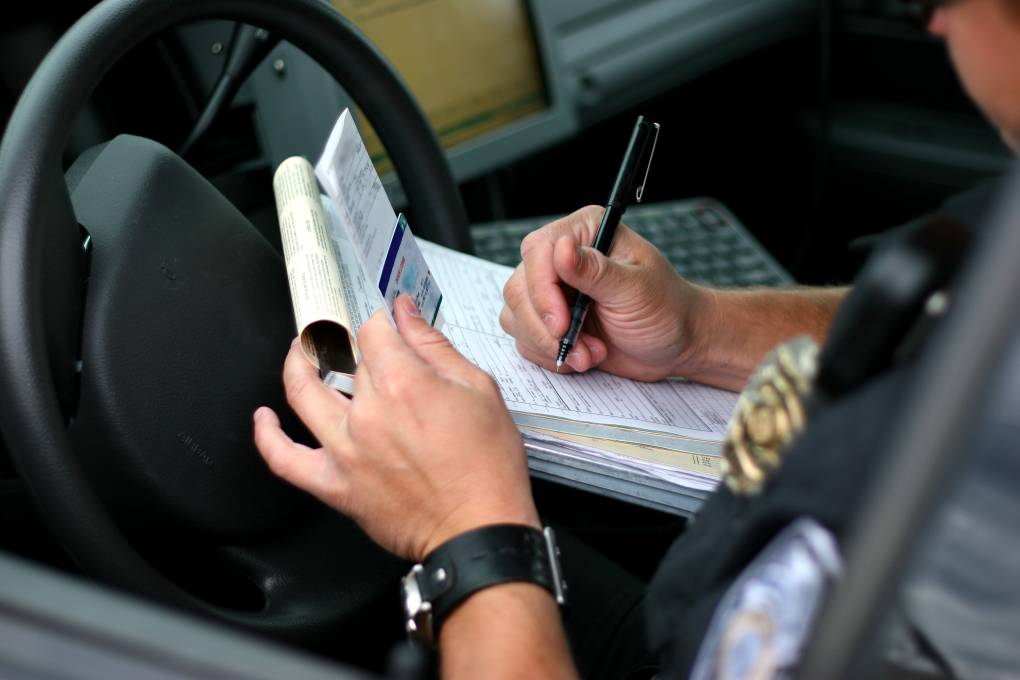California has among the highest traffic ticket penalties in the country, often putting significant burdens on people with lower incomes. San Francisco nonprofit SPUR analyzed traffic stop data in seven locations across the state, looking at who was stopped by police, why they were stopped, and whether or not they were given a citation. To learn more on what they found, KQED Radio News Anchor Natalia Navarro spoke with SPUR Economic Justice Policy Director Jacob Denney.
This interview has been edited for brevity and clarity.
NATALIA NAVARRO: The report published yesterday says research found that while the goal of traffic citations is presumably to discourage dangerous behavior, data is actually showing that in many cities and counties, traffic stops actually have nothing to do with actual road safety. Can you tell me more about that? How did you come to that conclusion?
JACOB DENNEY: When you look at traffic stop data, there's moving equipment and nonmoving. Moving stops are the traffic stops that are usually related to safety. Those are the things you're most concerned about. That's people speeding, running red lights, taking a ride on red when they shouldn't. The kind of thing that can endanger other people. Equipment stops tend to be stops related to care or maintenance of your vehicle. The most common equipment stop we see in many cities, including San Francisco, is your license plate being affixed incorrectly. Now, that stop doesn't have anything to do with road safety or driver safety or making sure that people don't harm other people with their vehicles or endanger themselves. So equipment stops are stops related to the equipment of your vehicle. They tend to be things like dice hanging from your mirror or a license plate affixed incorrectly. And what we see is that for Black and Latinx drivers across California, equipment stops are a larger share of stops than moving stops, which are the stops related to safety.

